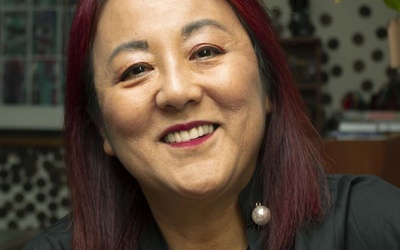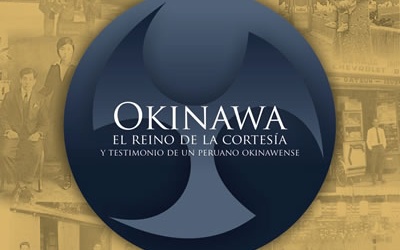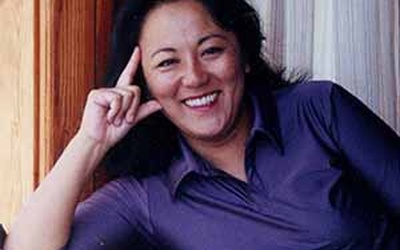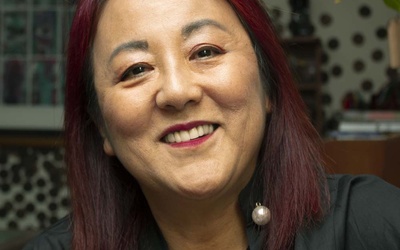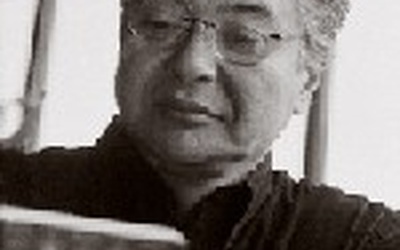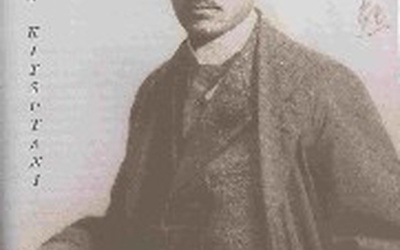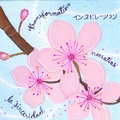
Doris Moromisato
@DorisMoromisatoDoris Moromisato is a poet, writer, cultural manager, researcher on gender issues and the Japanese presence in Peru. She is the Goodwill Ambassador of Okinawa. Graduated in Law and Political Science from the Universidad Nacional Mayor de San Marcos. He published 4 books of poetry and 3 of chronicles, his stories and essays make up various anthologies, his poems have been translated into several languages. (Photo: Jaidith Soto)
Last updated October 2020
Stories from This Author
songs
Sept. 16, 2021 • Doris Moromisato , traci kato-kiriyama
This month, we are pleased to present two poems in Spanish by Peruvian poet Doris Moromisato Miasato. She is an environmentalist, feminist and Buddhist and these two poems are beautiful tribute songs, one for her father and one for the famous Japanese artist Hokusai. From memories evoked to those imagined, his poetry reads like a song of lament, inspiration and wonder. I am grateful to carry these poems with me as we begin to leave summer for fall. I must …
El Placer de Ser Nikkei Okinawense en América Latina
Aug. 5, 2008 • Doris Moromisato
Argentina y Brasil, los dos colosos de América del Sur, celebran este año el primer centenario de la inmigración okinawense. En sus programas figuran conciertos, foros, torneos deportivos y eisa o marchas artísticas. Coincidentemente, en el Perú se acaba de publicar el libro Okinawa: el reino de la cortesía y testimonio de un peruano okinawense de Ricardo Munehide Ganaja Kamisato, que brinda luces sobre un tema común para la mayoría de comunidades nikkei okinawenses: el tema de la búsqueda de …
Amor y odio a Alberto Fujimori: testimonio de una nikkei peruana
April 15, 2008 • Doris Moromisato
Jamás, en toda mi vida de poeta, me había sentido en una situación tan ambivalente como cuando me pidieron recitar contra el presidente Alberto Fujimori. Era un acto de protesta ante su actitud de permanecer en el poder. Al llegar, me di cuenta que en la multitud yo era la única participante de origen asiático. Lo confieso: cuando me tocó el turno de subir al estrado, simplemente temblé y mis convicciones posmodernas occidentales empezaron a ceder ante siglos y siglos …
Debate sobre Alberto Fujimori: ¿Un Nikkei mesiánico o un presidente corrupto?
Jan. 11, 2008 • Doris Moromisato
El debate entablado, estos últimos meses entre Antonio Zapata1 de Perú y Ariel Takeda2 de Chile sobre el ex presidente peruano de origen japonés, Alberto Fujimori, ha causado sumo interés entre lectores y lectoras de Discover Nikkei. Para Takeda, las sentencias judiciales en contra de Fujimori son muy tempranas y no miden el histórico papel que jugó este personaje nikkei que a su entender reavivó la pacificación y la economía peruana. Para Zapata, Fujimori no es más que un reo …
Anti-japonismo en Perú: historia y nuevos ataques
Nov. 6, 2007 • Doris Moromisato
Á pesar de haber transcurrido más de cien años de presencia japonesa, la fusión entre sus descendientes y el Perú no se ha producido. Si bien existe un profundo intento de integración y unidad, la experiencia histórica de mutua desconfianza entre ambas partes ha pesado más. Las clases gobernantes de la primera mitad del siglo XX reclamaban a los japoneses la escasa voluntad de ser peruanos. Y los japoneses acusaban a estos de prejuicio racial y de un anti-japonismo explícito. …
Primeras organizaciones sociales y gremiales de la comunidad japonesa en Perú
Sept. 18, 2007 • Doris Moromisato
La historia de las organizaciones nikkei en el Perú tienen un momento muy claro: antes y después de la segunda guerra mundial. Desde 1909 hasta finales de los años 30, los inmigrantes habían formado en todo el territorio peruano centenares de asociaciones, gremios laborales y comerciales, escuelas, agrupaciones femeninas, periódicos, entre otras. Ellas servían para mantenerlos unidos, repitiendo las costumbres y ritos de sus tierras de origen, mientras iban aprendiendo los hábitos y la normatividad de la sociedad peruana. Una …
Imagen y discurso nikkei en la literatura peruana
Aug. 21, 2007 • Doris Moromisato
A punta de talento y una rica experiencia histórica, la presencia japonesa ya forma parte de la tradición literaria en el Perú. Consagrados escritores peruanos, como José María Arguedas o Mario Vargas Llosa, han insertado en sus narrativas personajes de origen japonés que muestran una imagen poco justa y fidedigna pues resultan seres fracasados y marginales en el contexto nacional. Felizmente, a partir de la posguerra y sobre todo desde la década del 70, los mismos descendientes japoneses hicieron sentir …
Poder, fama y reconocimento social. Nikkei en espacios públicos y políticos del Perú
June 13, 2007 • Doris Moromisato
Durante cien años la presencia japonesa estuvo presente en todos los espacios del Perú, pues sus integrantes incursionaron en diversas áreas públicas. Desde una pionera huelga en 1899 hasta un presidente nikkei que gobernó diez años el destino del país, pasando por deportistas, políticos y legisladores. Si bien es cierto que la comunidad nikkei siempre ha sido noticia, también es cierto que ha mantenido una relación ambigua de integración y distancia con sus compatriotas peruanos. Esta dualidad o doble estrategia …
Artistas Nikkei de Perú: ¿Movimiento cultural o coincidencia étnica?
May 16, 2007 • Doris Moromisato
Una vez Tilsa Tsuchiya, la artista plástica más importante de Perú, afirmó: “Si uno observa el arte precolombino, el chino, el japonés, verá que en el fondo son la misma cosa. ¡Pero si el Perú es oriental!”. La verdad es que Tilsa, descendiente de un inmigrante japonés y de una mestiza china andina, representa el emblema de la multiculturalidad del país y es la punta del iceberg de más de treinta artistas que se identifican así mismos como Nikkei. En …
Organización geográfica y económica de la comunidad Nikkei en Perú
April 18, 2007 • Doris Moromisato
Las primeras presencias japonesas en Perú se dieron hace 400 años en Lima. Recién a partir de 1899 se requirió a los japoneses como trabajadores agrícolas y miles de ellos se adaptaron a los desiertos de la costa, superando el soroche o mal de altura de los andes y los inclementes climas de la selva. Pero la mayoría dejó las palas y rápidamente se infiltraron en las ciudades abriendo pequeños negocios, ofreciendo múltiples servicios con habilidad, esfuerzo y un implacable …

